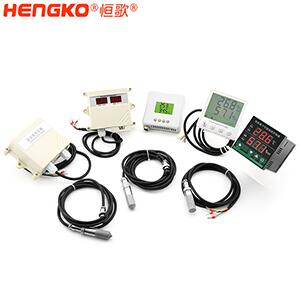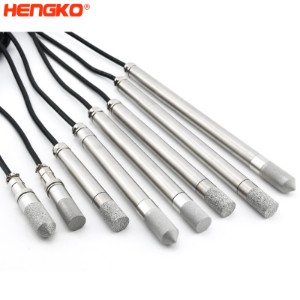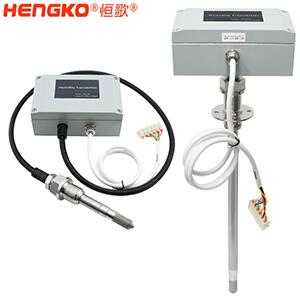Many applications need to record critical parameters such as humidity, temperature, pressure, etc. Promptly use alarm systems to generate alerts when the parameters exceed the required levels. They are often referred to as real-time monitoring systems.
I. Application of real-time temperature and humidity monitoring system.
a. Temperature and humidity monitoring of refrigerators used for storing medicines, vaccines, etc.
b. Humidity and temperature monitoring of warehouses where temperature-sensitive products such as chemicals, fruits, vegetables, food, pharmaceuticals, etc. are stored.
c. Monitoring the temperature and humidity of walk-in freezers, refrigerators, and cold rooms where medicines, vaccines, and frozen foods are stored.
d. Temperature monitoring of industrial freezers, Temperature monitoring during concrete curing, and Monitoring of pressure, temperature and humidity in clean rooms in manufacturing environments Temperature monitoring of furnaces, kilns, autoclaves, processing machines, industrial equipment, etc.
e. Humidity, temperature, and pressure monitoring in hospital clean rooms, wards, intensive care units, and clinical isolation rooms.
f. Engine condition, humidity and temperature monitoring of refrigerated trucks, vehicles, etc. that transport temperature-sensitive goods.
g. Temperature monitoring of server rooms and data centers, including water leakage, humidity, etc. Server rooms require proper temperature monitoring because server panels generate a lot of heat.

II. The operation of the real-time monitoring system.
The real-time monitoring system involves many sensors, such as humidity sensors, temperature sensors, and pressure sensors. Hengko sensors collect data continuously at intervals that have been specified, called sampling intervals. Depending on the importance of the parameter being measured, the sampling interval can range from a few seconds to several hours. The data collected by all sensors are continuously transmitted to a central base station.
The base station transmits the collected data to the Internet. If there are any alarms, the base station continuously analyzes the data. If any parameter exceeds a fixed level, an alert such as a text message, voice call, or email is generated to the operator.
III. Types of real-time remote temperature and humidity degree monitoring systems.
There are different types of monitoring systems based on device technology, which will be explained in detail below.

1. Ethernet-based real-time monitoring system
The sensors are connected to the Ethernet via CAT6 connectors and cables. It is similar to connecting a printer or a computer. It is important to have Ethernet ports near each sensor. They can be powered via electrical plugs or POE type (Power over Ethernet). Since the computers in the network can become base stations, no separate base station is needed.
2. WiFi-based real-time remote temperature monitoring system
Ethernet cables are not required in this type of monitoring. Communication between the base station and the sensor is via a WiFi router used to connect all computers. WiFi communication requires power, and if you need continuous data transmission, you need a sensor with AC power.
Some devices collect data continuously and store it themselves, transmitting data only once or twice a day. These systems can work for long periods with batteries because it only connects to WiFi once or twice a day. There is no separate base station, as computers in the network can become base stations. Communication depends on the range and strength of the WiFi router.

3. RF-based real-time remote temperature monitoring system
When using equipment powered by RF, it is important to check that the frequency is approved by the local authorities. The supplier must obtain approval from the authorities for the equipment. The device has long-range communication from the base station. The base station is the receiver and the sensor is the transmitter. There is a continuous interaction between the base station and the sensor.
These sensors have very low power requirements and can have a long battery life without power.
4. Real-time monitoring system based on Zigbee protocol
Zigbee is a modern technology that allows a direct range of 1 km in the air. If an obstacle enters the path, the range is reduced accordingly. It has a permitted frequency range in many countries. Sensors powered by Zigbee operate at low power requirements and can also work without power.
5. IP sensor-based real time monitoring system
This is an economical monitoring system. Each industrial temperature and humidity sensor is connected to an Ethernet port and does not require power. They run on POE (Power over Ethernet) and have no memory of their own. There is central software in a PC or server in the Ethernet system. Each sensor can be configured to this software. The sensors are plugged into the Ethernet port and start working.
Media Contact
Company Name: HENGKO
Contact Person: Media Relations
Email: Send Email
Phone: 0086-755-88823250
Country: China
Website: https://www.hengko.com/

